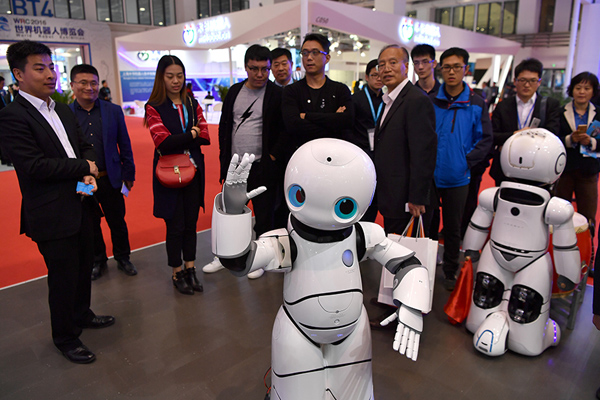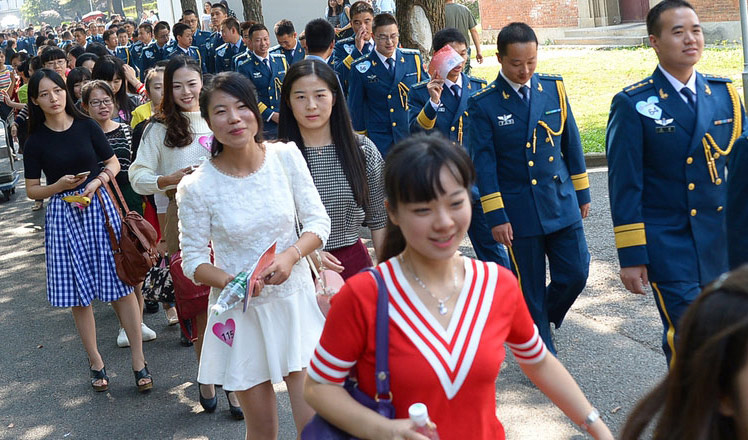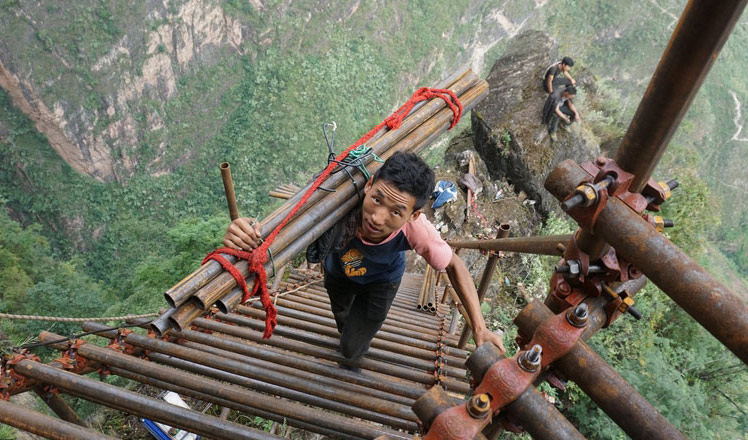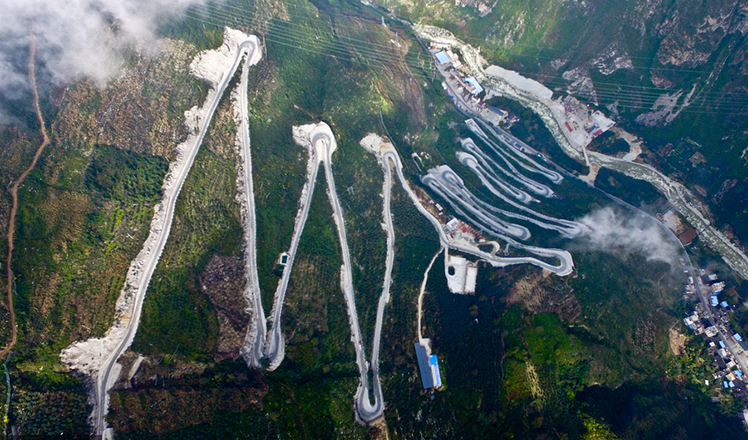Tech savvies' views on China's AI 'fever'
Updated: 2016-10-24 13:49
By Liu Zheng(chinadaily.com.cn)
|
||||||||
 |
|
Visitors watch robots for business uses during the 2016 World Robot Conference in Beijing, Oct 20, 2016. [Photo/Xinhua] |
2. In a recent published report by the White House entitled "National Artificial Intelligence Research and Development Strategic Plan", China was described as a nation that had overtaken the US in terms of the number of journal articles that mentioned "deep learning" or "deep neural network", which were core subjects in the AI R&D development process. How do you see the role that China plays in the world's AI industry?
Yu Kai said that during the global AI boom, labor reservation, capital concern and market potentials will help the country to stand out in the industry.
He has called for the country to continually strengthen abilities through talent education, technology breakthroughs and innovation, and he hopes to see more support from the government to replenish laws and regulators and enhance the supplementary investments in the sector.
Hu Yu pointed out that the "mass entrepreneurship and innovation" initiated by the government would effectively stimulate the future development of China's AI industry.
3. Google's chief futurist Ray Kurzweil believes that machines could become "conscious" by 2029 and AI will overtake human beings' intelligence by 2045. What are your comments in regard to the expectation?
"I (am) not worried about it. Although the existing robots are not as intelligent as the they are presented in science fictions, some of their characters, such as calculus or weight-carry abilities, have already overtaken the physiological limit of human beings," said Yu Kai.
Yu also said the limitations of robots were obvious. "Will they be able to create self-consciousness or even think independently? I think for the missions that require imagination, creativity or analysis and induction, robots will not be able to handle the works."
Li Shipeng said that the intelligence of robots would not surpass human beings but if we continually improve robots' abilities without any boundaries, the machines will surprise us in the future. For example, if you authorize a robot to fully access into all of your home appliances or even the traffic lights control hub of a city, it reserves potential safety threats.
"On one hand, robot acquires intelligence from human beings, but on the other hand, it is important for people to foresee robots' activities," said Li.

 Through the lens: Under the blue sky of Tibet
Through the lens: Under the blue sky of Tibet
 Military blind date attracts hundreds young women
Military blind date attracts hundreds young women
 Britain's Red Arrows arrive at Zhuhai for China air show
Britain's Red Arrows arrive at Zhuhai for China air show
 Villagers build ladder on cliff with 1,500 steel pipes
Villagers build ladder on cliff with 1,500 steel pipes
 Colorful leaves adorn Great Wall in Beijing
Colorful leaves adorn Great Wall in Beijing
 Ten photos from around China: Oct 14-20
Ten photos from around China: Oct 14-20
 Veterans mark 80th anniv. of end of Red Army's Long March
Veterans mark 80th anniv. of end of Red Army's Long March
 Road with 24 bends zigzags in Southwest China
Road with 24 bends zigzags in Southwest China
Most Viewed
Editor's Picks

|

|

|

|

|

|
Today's Top News
'Zero Hunger Run' held in Rome
Trump outlines anti-terror plan, proposing extreme vetting for immigrants
Phelps puts spotlight on cupping
US launches airstrikes against IS targets in Libya's Sirte
Ministry slams US-Korean THAAD deployment
Two police officers shot at protest in Dallas
Abe's blame game reveals his policies failing to get results
Ending wildlife trafficking must be policy priority in Asia
US Weekly

|

|








